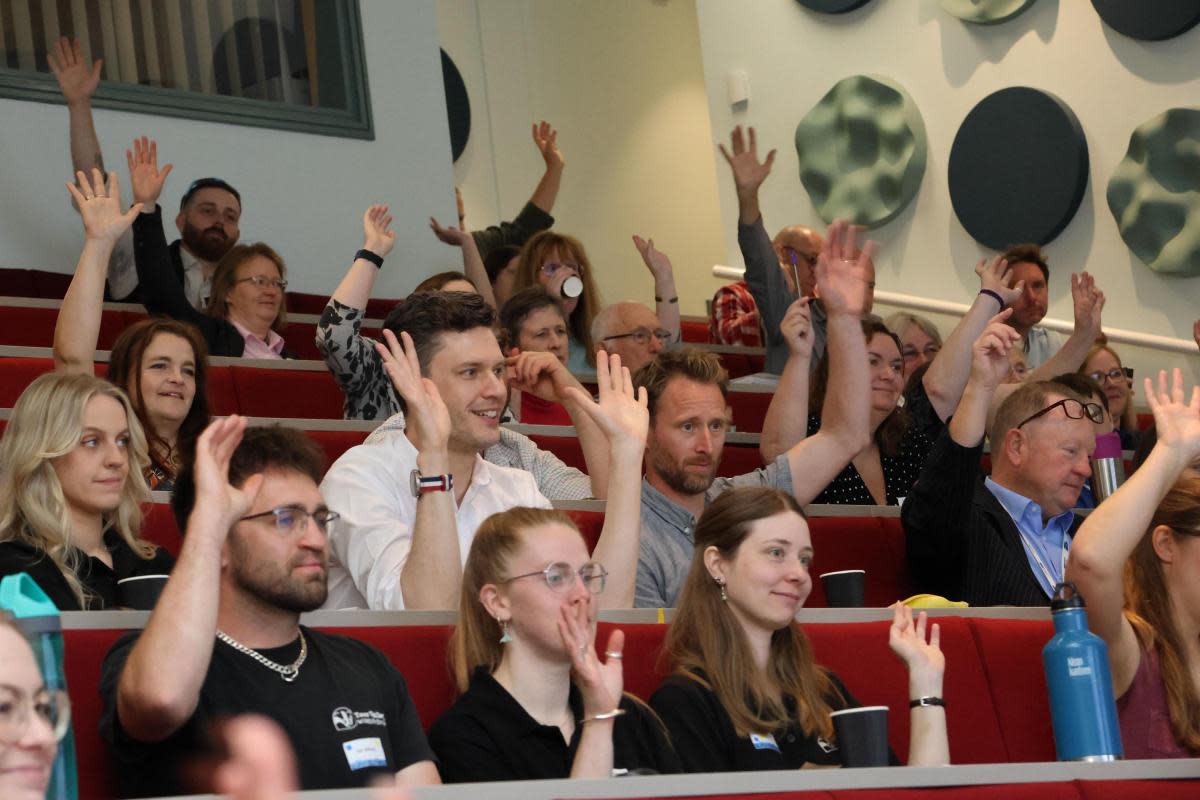'Too much tidiness isn’t good for nature,' environment conference told

"Too much tidiness isn’t good for nature," a major conference heard, as experts gathered to discuss environmental recovery.
Delegates at last Friday's Tees Valley Nature Conference heard that while the first environmental strategy had sat on a shelf since 1989, the latest Local Nature Recovery Strategies (LNRSs) were set in law and had the finances to succeed.
Hosted by Tees Valley Nature Partnership (TVNP) and Your Tees Catchment Partnership at Teesside University, the conference, entitled Uniting for Nature’s Recovery, attracted specialists from around the country.
TVNP chair Timothy Crawshaw told delegates: “The whole theme is about uniting for nature. The work we are doing now will still be here long beyond the turbulence the world is going through at the moment. This is an opportunity to change how we do everything rather than just patch up the mess other people make.”
The conference’s virtual keynote speaker and author of the widely reference Lawton Report, Professor Sir John Lawton, stressed that "too much tidiness isn’t good for nature". “Nature loves messy bits,” he said.
“Linked habitat patches are better than isolated. You can make space for nature anywhere. Make space and it will come, from window boxes, to several gardens joined up, to large scale habitats – all features great and small. Work in partnership to increase the scale, be ambitious and the more you do the better it gets for people and nature.”
Senior ecologist from consultancy Mott MacDonald Jonathan Siberry told the conference that the LNRS would aim to prioritise nature recovery opportunities in the Tees Valley, highlight delivery measures and map the local landscape.
Chief executive of Tees Valley Wildlife Trust Jeremy Garside said the LNRS was a brilliant opportunity and much needed.
“It is going badly out there but it’s been recently proved that nature conservation works,” he said. “What we do does make the world better and make a difference. The LNRS is a plan to actually do something, is very focused and there are resources to deliver it.”
Programme director of the South Tees pilot You’ve Got This, Dr Mark Fishpool added: “We all recognise the value of high-quality natural space to engage people in being more active. Boring spaces don’t encourage people to be active, interesting ones do. But the process takes time and we must hold our nerve to turn it into a reality.”
Environment policy advisor for the Country Land and Business Association Bethany Turner pointed out that 70 per cent of the land in England was agricultural so conservationists needed to get the land managers on board.
Durham Wildlife Trust director Jim Cokill said: “If we could have 30 per cent of land and sea for nature we could deliver nature recovery not conservation. But we need one in four people to do something to get to a tipping point.”
Senior ecologist for the North York Moors National Park Elspeth Ingleby said climate change and higher temperatures were putting heat stress on the moors, with the threat of drought and wildfires, while the intense rain eroded the soil and threatened species. “Connecting the moorland to other habitat is crucial to sustain the moorland for the future,” she added.
Professor Richard Lord, of the Net Zero Industry Innovation Centre, said there were 66 companies based in a six-mile radius of the mouth of the Tees. “It’s hard to believe with that industrial footprint that there is such interesting biodiversity there, on vacant derelict land,” he said. “We might have had 180 years of industrialisation but nature is still there which shows how resilient it is.”
Chief executive of the Tees River Trust Ben Lamb concluded: “We need our rivers for life, to play, to drink, and we don’t look after them well enough. Our passion for nature connects us all and the hope is that we are going to make some improvements.”

 Yahoo News
Yahoo News 
